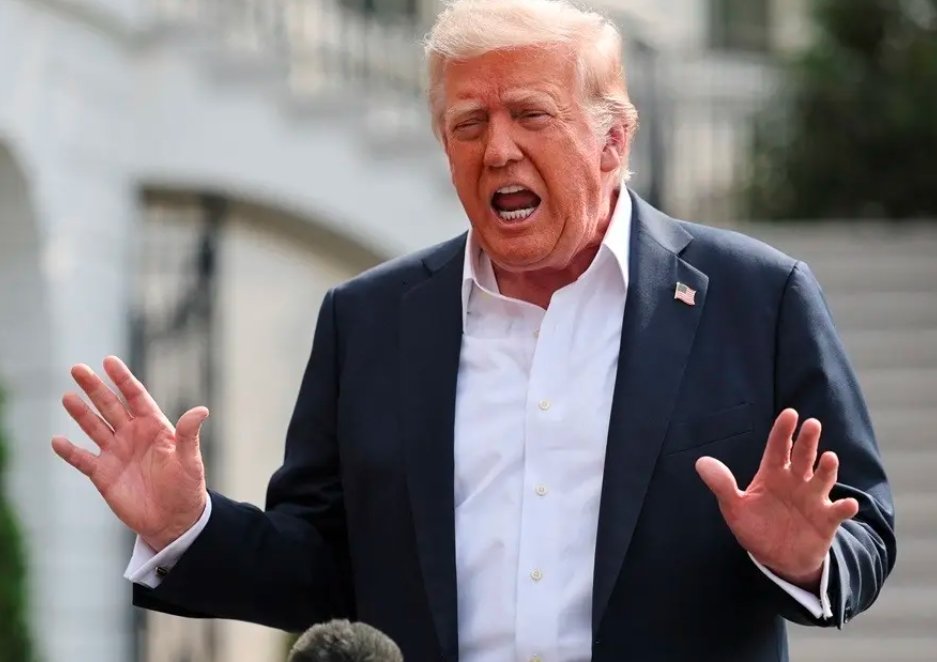WHCA calls move ‘deeply troubling’ as questions swirl over retaliation, transparency, and Trump’s media strategy
Things just got louder inside the White House press corps.
The White House Correspondents’ Association (WHCA) issued a rare, sharply worded rebuke on Monday after learning that the Wall Street Journal has been booted from the press pool traveling with President Trump to Scotland later this week. The trip, which includes visits to Aberdeen and Turnberry from July 25 to 29, will now take place without one of America’s most prominent newspapers in tow.
Why? That’s where things start to get murky—and political.
Editorial Payback? WHCA Thinks So
At the center of the uproar is a report the Wall Street Journal published just days ago. It wasn’t flattering. The article revealed a 2003 birthday greeting allegedly sent by Trump to Jeffrey Epstein, complete with a crude drawing and a cryptic message: “May every day be another wonderful secret.”
The White House said the story was fake, called the drawing a forgery, and according to The Washington Post, privately urged the Journal to spike the piece altogether. They published anyway.
Now, they’re off the plane.
One sentence paragraph here. Makes it land better.
WHCA isn’t buying the timing. “This attempt by the White House to punish a media outlet whose coverage it does not like is deeply troubling,” said WHCA President Weijia Jiang in an on-the-record statement. “Government retaliation based on content is a direct threat to press freedom.”

A Pattern That’s Hard to Ignore
This isn’t the first time the Trump White House has played hardball with press access. Earlier this year, the Associated Press was excluded from a Gulf of Mexico briefing after refusing to adopt the administration’s preferred terminology for the region.
And now this.
For context, here’s how the current administration has handled major media in 2025 so far:
| Media Outlet | Incident | Month |
|---|---|---|
| Wall Street Journal | Barred from Scotland trip after Epstein letter story | July 2025 |
| Associated Press | Excluded from press pool over Gulf of Mexico terminology dispute | May 2025 |
| The Washington Post | Restricted from Oval Office access post-critical editorial | February 2025 |
The trendline is clear. Tensions between the White House and some parts of the media are escalating again—just as the 2026 midterms begin to heat up.
‘Unacceptable’ and Possibly Broader
Jiang said she contacted the White House directly after learning about the move against WSJ. No explanation was given beyond the Journal’s recent “editorial choices.” The bigger concern, though, is whether this is just the beginning.
“As of this writing, it’s unclear if this is a one-off exclusion or if the Journal is being shut out of future pool rotations,” Jiang told reporters. “That distinction matters for planning, logistics, and fairness.”
And for precedent.
Because if the White House can pick and choose who gets on Air Force One based on how flattering their headlines are… well, where does that stop?
Journalists Talk Back
Reporters are used to snubs. But this one’s different.
Several veteran correspondents privately told Bloomberg that this marks one of the clearest examples of potential editorial retaliation in recent years. It isn’t just access—it’s influence.
One sentence again. Feels real, like someone quickly venting.
A White House beat reporter from another major network said: “Every outlet has published tough stuff on Trump. But this was… personal. And now, it looks like they’re being punished for it.”
Here’s what else journalists are worried about:
-
Will this chill future coverage?
-
Are outlets going to hesitate before running unflattering stories?
-
Is the administration trying to set a new precedent?
And maybe the scariest part: Are they succeeding?
The Epstein Letter That Lit the Fire
What set this all off was a Thursday article that drew immediate fire. The Journal published details of a previously unseen 2003 note Trump allegedly sent to Epstein. It included a hand-drawn nude and an eerily vague message about secrets.
The White House went ballistic.
They denied it outright. Called it fake. Said it was “politically motivated fiction.” They also reportedly lobbied WSJ editors behind closed doors—unsuccessfully.
The Journal ran it anyway. That decision, it seems, cost them a seat on the next international flight.
Scotland Trip Still On—Without WSJ
The trip to Scotland has symbolic weight. Trump is expected to make high-profile appearances in Aberdeen and at his golf course in Turnberry, which has been under scrutiny for years due to ethics concerns during his previous presidency.
Without WSJ, the press pool still includes reporters from CBS, NBC, Reuters, and Bloomberg—for now.
But the list could shrink.
A source familiar with the situation said more outlets could face restrictions “if editorial standards cross the line,” though that line remains undefined.
Another single-sentence paragraph. It adds breathing room.
And that vagueness? It’s exactly what worries press advocates most.
A Chilling Signal
The WHCA’s statement ends with a plea, not just a protest. Jiang urged reporters to remain unified and to reach out directly with concerns or questions. But the subtext was clear: This isn’t just about one trip, one article, or one outlet.
It’s about the role of the press itself.
“Independent journalism isn’t a luxury,” one White House reporter said. “It’s a necessity. When you start kicking people out over what they write… it’s no longer democracy—it’s stagecraft.”


















